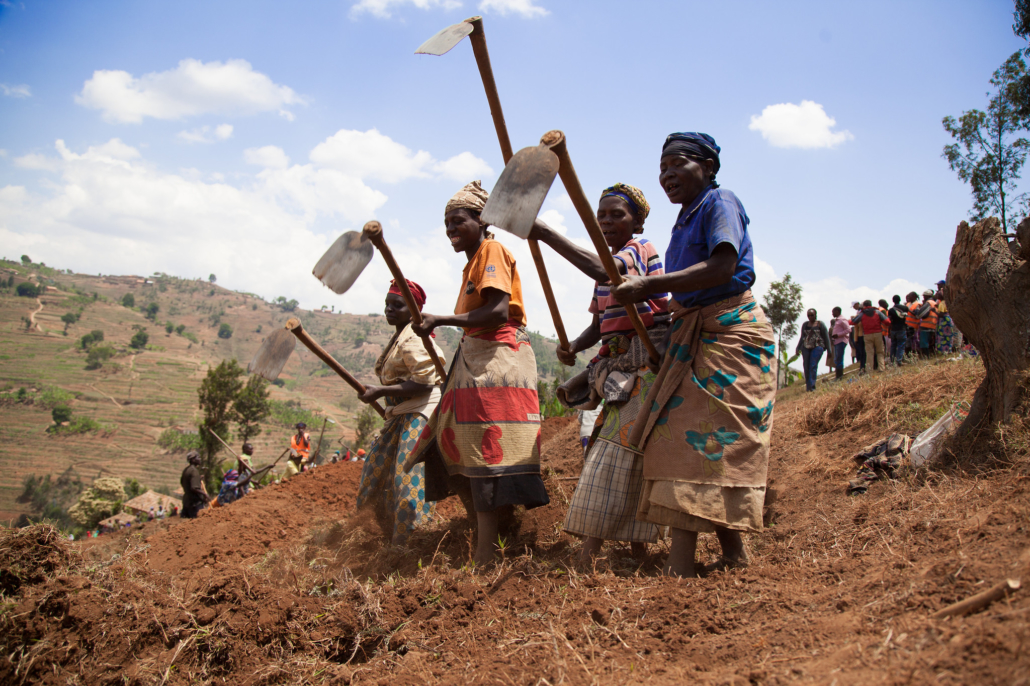Improving Rural Development In Rwanda

Rwanda’s agricultural sector is the main driving force behind its economic growth and development. About 70% of its population is directly involved in agriculture. With few natural resources and a small mining industry, the landlocked country relies heavily on agriculture. Despite the large involvement and employment of people in agriculture, Rwanda’s agricultural sector accounts for only 33% of its GDP. Smallholder farmers are responsible for producing 75% of Rwanda’s total agricultural production. Most of them are in rural areas, which constitute nearly 98% of the total land area. Although 61% of Rwanda’s soil is ideal for agriculture, several challenges have affected its agricultural sector. Here is some information about how a company called OX Delivers is aiding rural development in Rwanda and improving life for those in rural communities.
Challenges in the Agriculture Sector
Land degradation and soil erosion are existing challenges to Rwanda’s agricultural sector. Land degradation is largely due to human activity as farmers use land multiple times to cultivate different agricultural products. On the other hand, steep slopes partly create soil erosion. It is particularly challenging for Rwanda because 90% of the country’s territory comprises slopes, according to the Food and Agricultural Organization of the United Nations (FAO).
Erosion displaces soil due to the heavy rain that carries away soil particles from one area to another. Large involvement and dependency on agriculture result in forests becoming farm fields. According to World Wildlife Fund (WFF), agricultural crops like coffee, soybeans and wheat that replace trees cannot hold onto the soil which increases soil erosion. Rwanda’s principal crops include coffee and wheat among many others. Most smallholder farmers also struggle to find and access markets for their goods. Rural areas often have poor infrastructure. Roads of poor quality present challenges in making markets more accessible to smallholder farmers. Changing its agrifood market structure is an important task for Rwanda as the country aims to transform its agricultural sector into a value-creating and market-oriented food sector.
Terrace Fields and Market Access
Rwanda has been able to solve its own challenges in the agricultural sector. An innovative solution to land degradation and soil erosion is changing the structure of fields. Instead of working on the steep hills and farmlands, farmers in Rwanda have adapted reverse slope bench terracing. It is a soil and water conservation measure that moves soil to build a reverse slope with bench-like structures. Stable soils characterize the terraces which reduce the risk of landslides. Smallholder farmers also use grass and small trees to stabilize the bench-like structures. Farmers have benefited from higher yields as a result of farming crops on steep slopes.
Delivery companies like OX Delivers are also transforming Rwanda’s agricultural sector. OX Delivers was established in 2020 to improve farmers’ access to rural markets in Rwanda. It uses fully-electric trucks to transport goods in rural areas where transportation is challenging due to rough terrain. OX trucks are reliable for their clean and affordable transport. The company has identified the high transportation costs associated with rural areas and thus, charges customers for only what they need.
Customers, most of whom are smallholder farmers, pay on a per kg per km basis. Customers book space on a truck with the drivers and make payments face-to-face. According to the founder, Simon Davis, OX Delivers is able to charge affordable prices as running on electricity costs 50% less per day compared to diesel engines. What makes OX Delivers unique is that it is solely focused on rural development in Rwanda. The company serves rural smallholder farmers and small-scale traders looking to access markets in Rwanda.
An Improved Agricultural Sector
Innovative solutions like the reverse slope bench terracing method and the electric truck services are transforming Rwanda into a nation with a rich market-oriented food sector. These solutions help to counter problems like soil erosion, land degradation and lack of access to markets in Rwanda. Rural smallholder farmers are able to contribute to rural development in Rwanda by not only farming for their own consumption but also by supplying to markets. Small-scale traders are able to increase their profits as electric trucks improve their access to markets. Farmers are also able to grow their production by successfully farming on steep slopes. With more participation in markets, they can increase production, profit from commercial activities and improve their household incomes.
– Hans Harelimana Hirwa
Photo: Flickr
